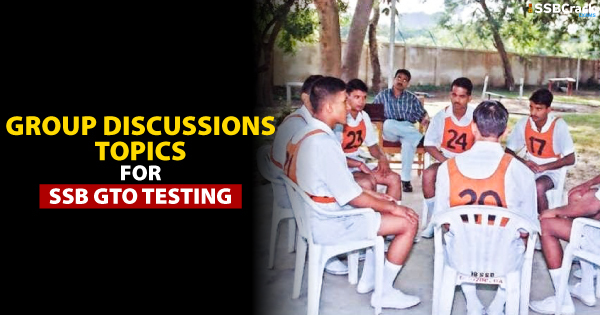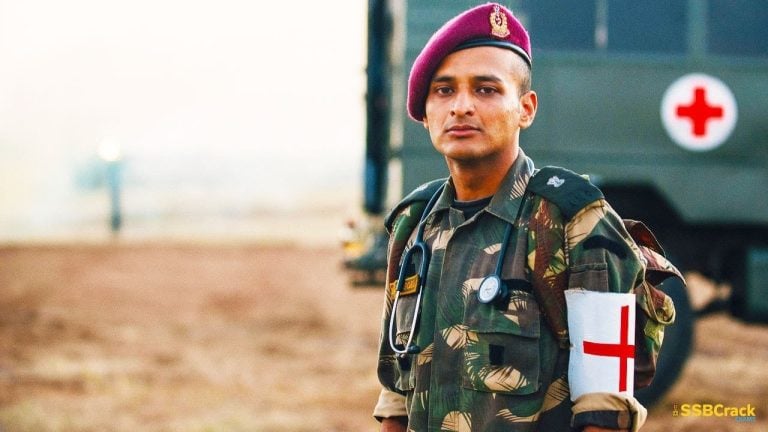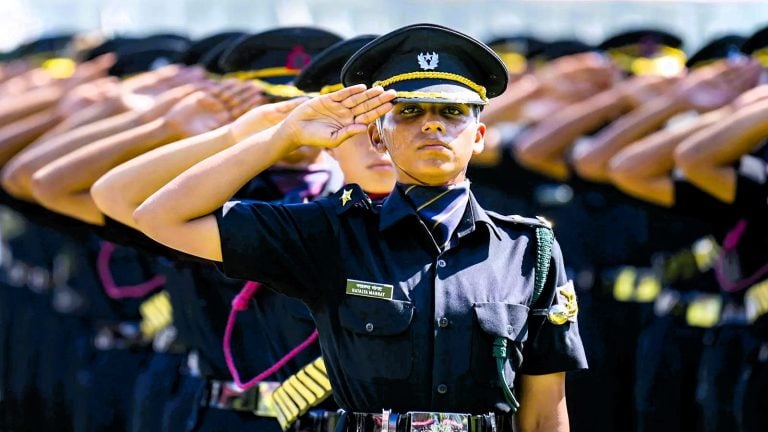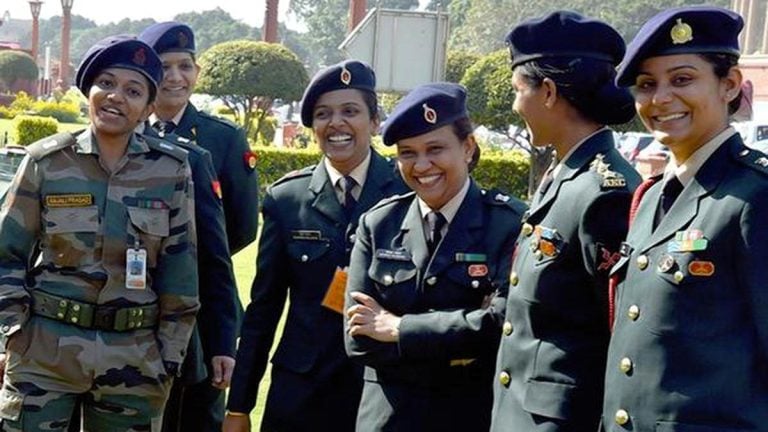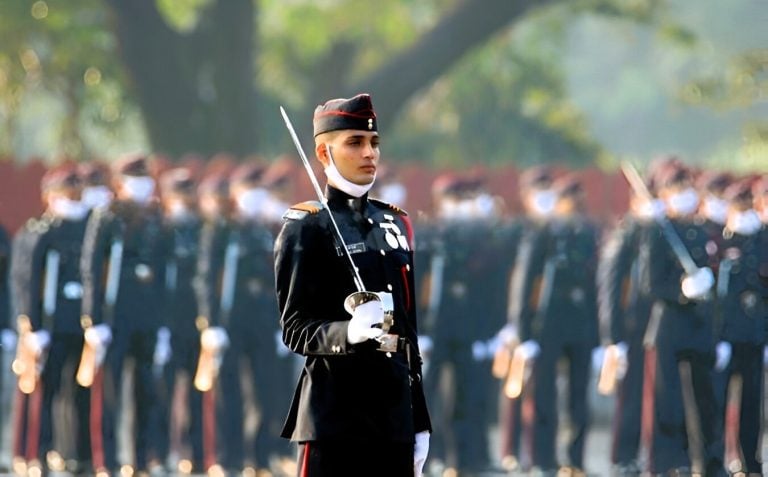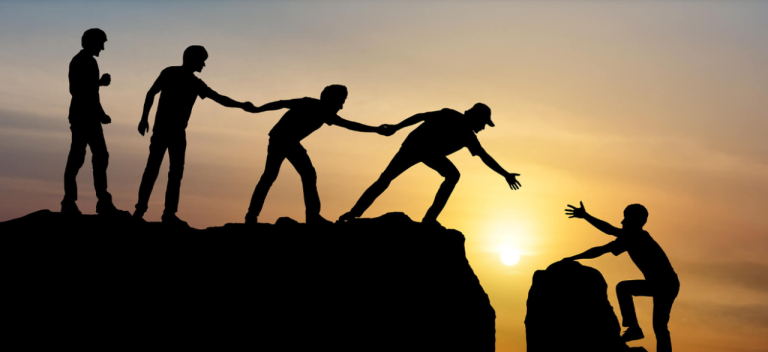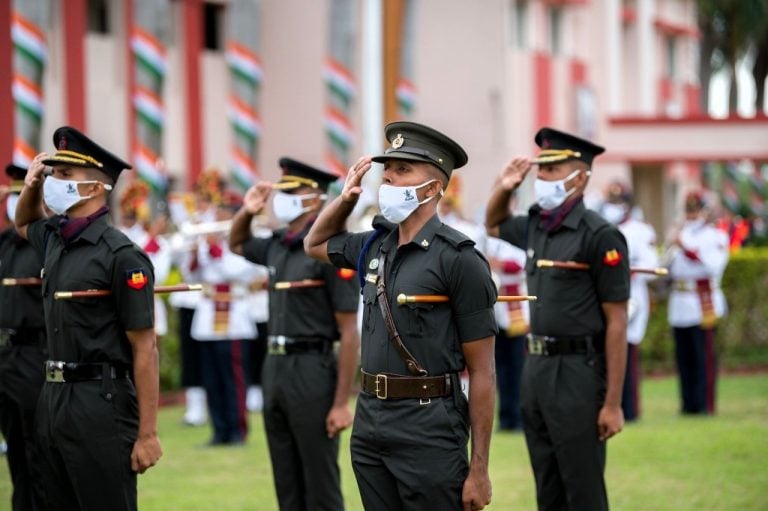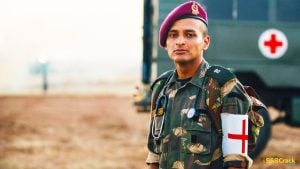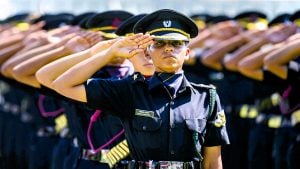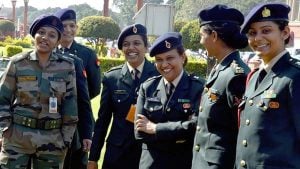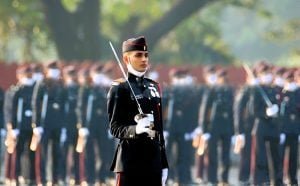The Group Discussion is conducted on the Day-3 i.e. GTO Day 1 of the SSB 5 day process. As a part of the Group Discussion, the candidates are given two topics to discuss one after another. While they are given choice to choose the first topic by voting but the second one is of GTO’s choice and a mandatory one. The topics cover important International policies and issues, national policies and issues, social issues and current events. They are allotted 20 minutes each for a healthy discussion on each topic and the GTO assesses all the group members by sitting beside them.
Group discussion is a process where the candidates get an opportunity to formally exchange their opinions and ideas on subjects and issues of common interest and controversial nature. Group discussion is an excellent way to display your knowledge in current trends and matters of the globe, how well informed you are about the things happening around you, and most of all, to examine your communication skills. The goal of this discussion is to help the candidates to know each other. Therefore, it provides them with a platform to explore each other and make an impression on one another. It goes without saying that you need to be prepared beforehand, with a good hold on a broad array of topics.
Let’s discuss some of the trending and important Group Discussions topics that may find a place in GTO’s diary:
• Nationalism vs Regionalism
Nationalism & Regionalism need to be discussed in two different contexts and they are the Indian Political context and international relations. Both have different meanings and need to be looked at in different sections.
• Freedom of Press in India
India is considered to be a country having the freedom of the press. In the constitution, it is nowhere mentioned specifically about a free press in the country. This right is safeguarded by one of them, fundamental rights i.e. freedom of speech, Article 19(A) of the Indian Constitution. Due to its immense outreach and its freedom of expression, it is considered to be the “fourth pillar of democracy” in India.
Press keeps us informed about the good and the bad in the society, in the governmental and non-governmental institutions, different policies and their implications etc. As the common man cannot participate directly in the proceedings of Parliament which are going to shape the country’s future, it is the press that gives him a voice and tells the policymakers the mood of this country. It is quite evident that the Press carries a huge responsibility on its shoulders in a democracy. And the journalists and the government both should be in full realization of it. Protection of free voices is the duty of the government and avoiding misuse of this freedom the responsibility of the press.
• India-China Relations
India & China have border issues mainly at Aksai Chin & Arunachal Pradesh. The border dispute is the main reason for Indo-China war 1962, Doklam standoff in 2017 and the most recent Galwan Valley violent Clash between Indian Army Troops and PLA. After Pulwama terror attacks, India requested the United Nations to list Masood Azhar as a global terrorist. Even though 14 countries of UNSC are in favour of the proposal, China blocked the request using its veto power.
• Should Military training be made compulsory for all in India?
Military training is compulsory in some countries including North Korea, Norway & Israel. Compulsory military training may not be accepted in a country like India, because of the democratic spirit in Indians. Instead, the reserve force can be formed by strengthening the National Cadet Corps (NCC), which is open to schools and colleges on a voluntary basis. The recent Tour of Duty proposal has brought this issue in limelight but with a different shade.
• Freebie Politics in India
The term Freebies is not new; rather it is a prevalent culture in Indian politics. The political parties are always trying to outdo each other in luring the Indian voters with assorted freebies. From free water to free smartphones the Indian politicians promise everything to attract prospective voters in favour. This trend has gained more momentum in recent times with the political parties being innovative in their offerings as the ‘traditional free water and electricity’ are no longer sufficient as election goodies.
Over the years political parties have been promoting the freebie culture in the name of welfare schemes. These election goodies have taken centre stage in the election process and some voters make biased decisions based on account of greater benefits offered rather than the real capability of the leader. This not only has effects on the mind-sets of the people who get crushed in this game of politics but also degrades the importance of the election process.
• Can women be in combat roles?
In November 2018, the then Indian Army Chief, Bipin Rawat said that Indian Army is not yet ready for women in combat roles ( face to face fight with the enemy ) considering the lack of facilities and infrastructure to make it happen. Other two Indian Armed Forces, i.e. Indian Air Force & Indian Navy allows women in combat roles. Currently, there are women in Indian Army working in some areas such as medical, legal, engineering wings etc. In June 2017, Indian Army Chief, Bipin Rawat said that the Indian Army has started the process to recruit women for combat roles.
As of 2018, Germany, Australia, Canada, the US, Britain, Denmark, Finland, France, Norway, Sweden and Israel have allowed women in combat roles. If women are willing to serve in combat roles for the country, it will be discriminatory to not allow them. It’s important to provide facilities for women to fasten the process of including women in combat roles in the Indian Army
• Involving Army in civil tasks – Right or Wrong?
Army’s efficient and uninterrupted functioning is essential to the nation or society. The army with its large pool of highly disciplined and trained manpower is often summoned to run these essential services in times of labour trouble. In times of labour strikes, the army is often asked to run the affected services in order to prevent striking workers from holding society. Not involving the Army in civil tasks helps the Indian military to achieve a high degree of professionalism and concentrate its efforts on the defence of the country. The military, however, plays its role in rendering advice on matters concerning national security.
Undoubtedly, internal security is as important as external security. However, it must never be forgotten that external security can be ensured only by the armed forces whereas other organizations can be trained and equipped to undertake internal security assignments. The work of the army is to ensure national defence against external threats. Nothing should be done to dilute the focus from this. The army must be kept free of all avoidable non-military commitments to allow it to remain prepared for its primary task and most important task.
• Fake News – Impact on society
Fake or fabricated news is a type of Yellow Journalism or propaganda that consists of misinformation spread via social media or news channel.
It is written with the intent to mislead masses in order to damage someone’s image or take it to the next level for their benefit. Fake news often has eye-catching headlines to lure audience, increase their readership and make money. The publishers and distributes of these fake news and websites are aware that people would be blindly attracted toward catchy titles and images.
It is our responsibility not to trust these popping news blindly and to use legitimate and authentic sources to read share news. Whenever we encounter a fake news website, we need to report it to cyber cells. Strong policies are needed to deal with fake news and to deter fake content creators. The work on Artificial Intelligence by Google and Facebook to weed out fake news can solve this problem to a large extent.
Fundamentally, three personality traits are assessed through group discussions namely, communication abilities, interpersonal skills, and knowledge of the subject. It is a means to ascertain the analytical skills of the candidates. Hence, content as well as the structure of one’s views matter.
There are certain things that you can follow and implement in your daily life to make yourself better for group discussions and can be equipped with important personality changes to enhance your capabilities and influence in social circles. Approach the SSB Centre with the mindset of treating the place to make friends, followers and healthy competitors. Make it a group space to absorb the essentials of the topic, plan your mental argument, contribute views from your own perspective to improve the discussion and generate group cohesion despite differences of opinion and ideology.
I hope that till now you must have been got a substantial starting point to take off your group discussion preparation for SSB.
You can prepare for SSB Interview and defence entrance exams such as NDA, AFCAT, INET, and CDS Exam by taking Written Online courses as they will not only give you access to full-length quality lectures but will also provide the facility to take standardized mock tests for better study and strategic growth in the exam. You can take multiple quizzes after each lesson to ensure a full understanding of the subject along with creating your customized lesson plans. You can check out the course content along with other important specifics at SSBCrackExams.
You can also access them through the SSBCrackExams App available in the google play store.
Jai Hind

